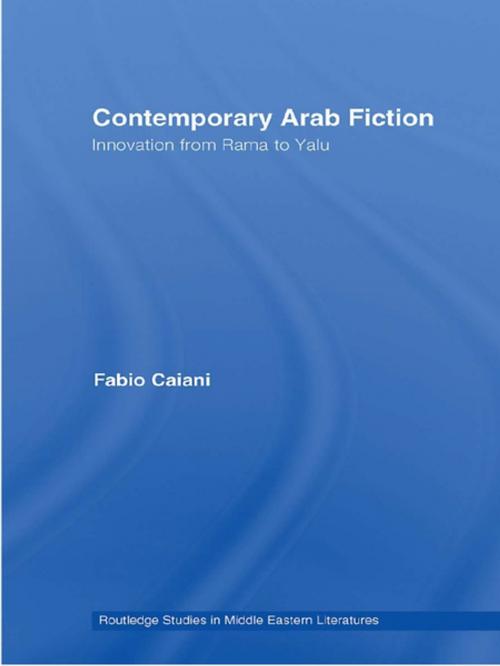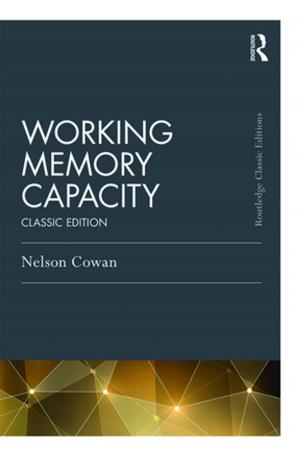Contemporary Arab Fiction
Innovation from Rama to Yalu
Fiction & Literature, Literary Theory & Criticism, Asian, Middle Eastern, Anthologies| Author: | Fabio Caiani | ISBN: | 9781134121694 |
| Publisher: | Taylor and Francis | Publication: | September 12, 2007 |
| Imprint: | Routledge | Language: | English |
| Author: | Fabio Caiani |
| ISBN: | 9781134121694 |
| Publisher: | Taylor and Francis |
| Publication: | September 12, 2007 |
| Imprint: | Routledge |
| Language: | English |
This book introduces Western readers to some of the most significant novels written in Arabic since 1979. Despite their contribution to the development of contemporary Arabic fiction, these authors remain largely unknown to non-Arab readers.
Fabio Caiani examines the work of the Moroccan Muhammad Barrada; the Egyptian Idwar al-Kharrat; the Lebanese Ilyas Khuri and the Iraqi Fu’ad al-Takarli. Their most significant novels were published between 1979 and 2002, a period during which their work reached literary maturity. They all represent pioneering literary trends compared to the novelistic form canonized in the influential early works of Naguib Mahfouz. Until now, some of their most innovative works have not been analyzed in detail – this book fills that gap.
Relying on literary theory and referring to comparative examples from other literatures, this study places its findings within a wider framework, defining what is meant by innovation in the Arabic novel, and the particular socio-political context in which it appears. This book will significantly enrich the existing critical literature in English on the contemporary Arabic novel.
This book introduces Western readers to some of the most significant novels written in Arabic since 1979. Despite their contribution to the development of contemporary Arabic fiction, these authors remain largely unknown to non-Arab readers.
Fabio Caiani examines the work of the Moroccan Muhammad Barrada; the Egyptian Idwar al-Kharrat; the Lebanese Ilyas Khuri and the Iraqi Fu’ad al-Takarli. Their most significant novels were published between 1979 and 2002, a period during which their work reached literary maturity. They all represent pioneering literary trends compared to the novelistic form canonized in the influential early works of Naguib Mahfouz. Until now, some of their most innovative works have not been analyzed in detail – this book fills that gap.
Relying on literary theory and referring to comparative examples from other literatures, this study places its findings within a wider framework, defining what is meant by innovation in the Arabic novel, and the particular socio-political context in which it appears. This book will significantly enrich the existing critical literature in English on the contemporary Arabic novel.















